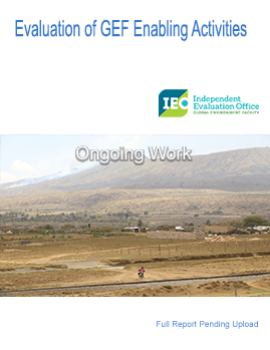Overview
GEF enabling activities are projects to prepare a plan, strategy, or report to fulfill commitments under a Convention. This evaluation assesses the role of enabling activities in helping countries meet their Convention obligations, their role in developing national policies, plans and strategies, and the efficiency of the direct access mechanism.
Findings
- Enabling activities are predominantly viewed as a tool for supporting countries in reporting to the Conventions.
- Enabling activities play a significant role beyond Convention reporting and are helping to fill several gaps.
- Enabling activities are aligned with national priorities, but the link to Convention Guidance is less clear.
- The original purpose of enabling activities has been fulfilled, but needs are changing over time, and the focus of enabling activity-supported projects is shifting.
- Achievement of results is determined by resources, national capacity, and political will.
- The approval process is efficient, but post-approval, there are concerns about disbursement and implementation.
- Direct access was a good idea in theory but is too bureaucratic and cumbersome.
- Ad hoc approaches to Convention reporting do not necessarily lead to good quality work.
- The burdens on GEF Agencies are too high.
- The processing and management of enabling activities is not agile enough.
- Addressing inefficiencies in how the processes of project approval, disbursement, and implementation are carried out would help to strengthen enabling activities.
